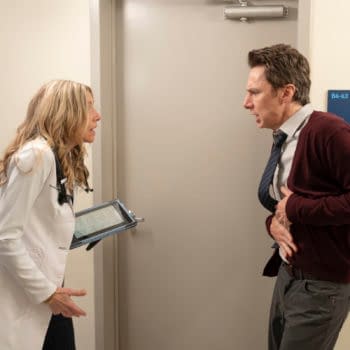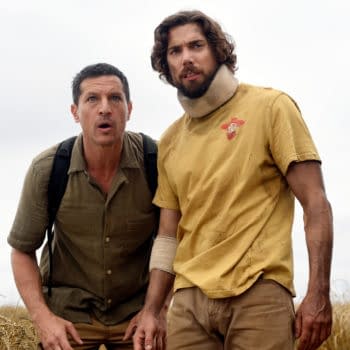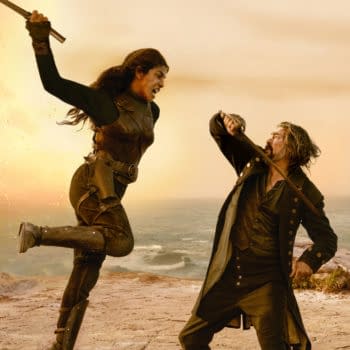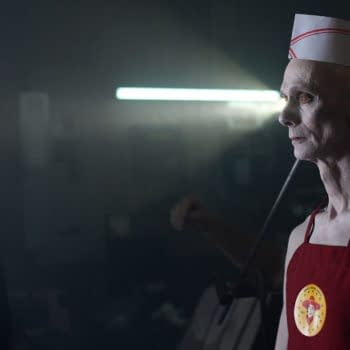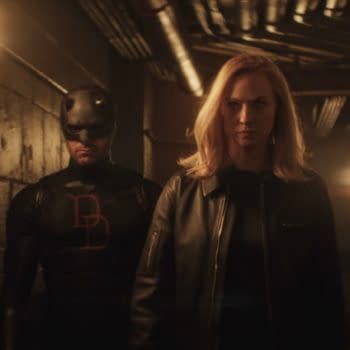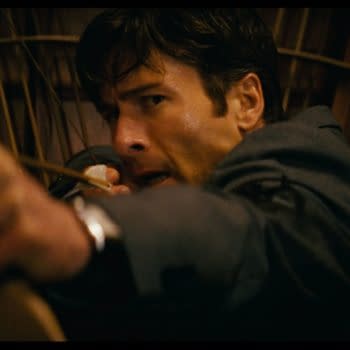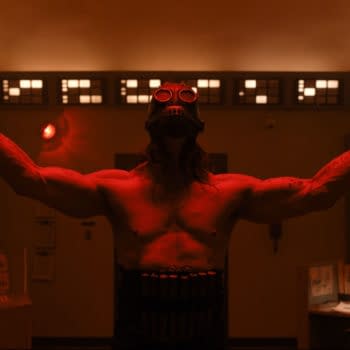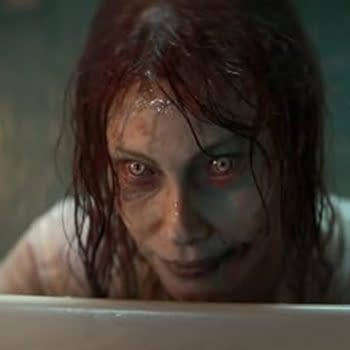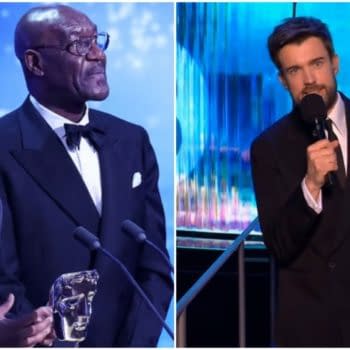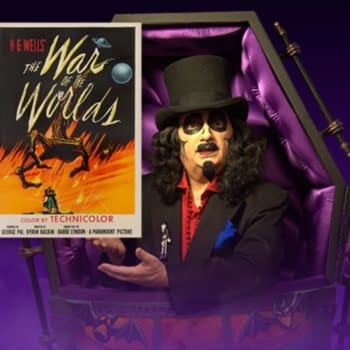Posted in: Exclusive, Interview, Movies | Tagged: exclusive, hippo, interview, Kimball Farley, Lilla Kizlinger, Mark H. Rapaport
Hippo Director on If There Were Bigger Plans for Eric Roberts & More
Director Mark H. Rapaport (Andronicus) spoke to us about if there were plans for Eric Roberts to be more than the narrator in Hippo.
Article Summary
- Director Mark H. Rapaport speaks on Eric Roberts' role as narrator in Hippo's intriguing storyline.
- Eric Roberts' absence enhances the mystery of the father figure, leaving audiences to speculate.
- The narrator was a budget tool that added depth without needing visual flashbacks.
- Rapaport reveals how the family and satire of American norms shape Hippo's striking conclusion.
When director Mark H. Rapaport conceived his latest film, Hippo, alongside co-writer and star Kimball Farley, it was an extension of what Farley crafted in his 2021 short Andronicus. Having previously worked with the husband-and-wife duo of Eric Roberts and Eliza Roberts, both were also recruited, with Eliza having an on-screen role as the mother, Ethel, trying to raise two children, the angsty self-absorbed Hippo (Farley) and his deeply religious foster sister Buttercup (Lilla Kizlinger), who have their share of dysfunction in the family. Eric was cast as the narrator. Rapaport spoke to Bleeding Cool about whether he had bigger plans for Eric, given the mystery surrounding the father and what went into one detail of his controversial ending. The following contains minor spoilers.
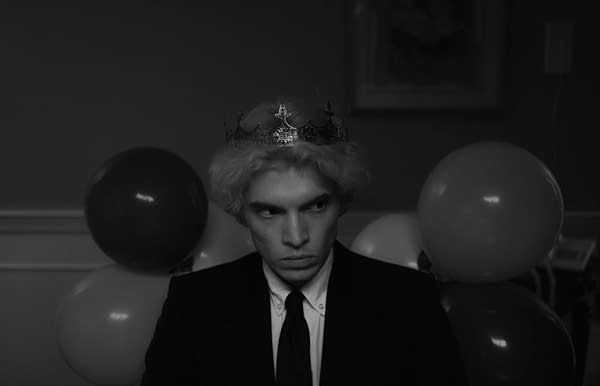
Hippo Director on If There Were Bigger Plans for Eric Roberts & Ending
Bleeding Cool: At what stage did you determine the film was only going to allude to the father and never make an appearance? What went into deciding the only exposition needed would be a letter Hippo would read among his mother's belongings? Was there ever a talk that Eric would make a physical presence, or was it better for the audience to speculate who the father is?
It's a great question. The idea of the narrator began as a budgetary tool because it helped me. Say more with less because a narrator can fill in [the details]. It's almost like you're doing flashbacks, but you don't have to show them. You can have side scenes and don't have to show them because we're being told them. [As a filmmaker], you don't overuse that. Movies like 'Amélie' (2001), 'American Beauty' (1999), 'Vox Lux' (2018) turn to things like that, and I realized, "These movies work, but it doesn't feel like the absence of something with the narration. It feels like it's on a positive that's adding to the movie experience." That's how it started.
Thematically and story-wise, it was helpful to show. I wanted to show how this single mother raised this family. That's a satire on the American nuclear family where the dads work all day, and moms deal with all the bullshit. It was important that the father was a bit absent. My father was there, and my parents eventually got divorced, but he worked a lot. Their relationship ended poorly as a result.
There are some feelings there about like, "Our mom probably carried most of the brunt of raising us for sure. I also wanted to be truthful to that, but let the Father guide us from the heavens." There was a thought of putting Eric in at the end and showing him in person, like a little tongue-in-cheek wink at the audience, like Morgan Freeman style or whatever. Here, he is reading in the narration, but it seems a little too cheesy. We left it at making him this overarching paternal presence.
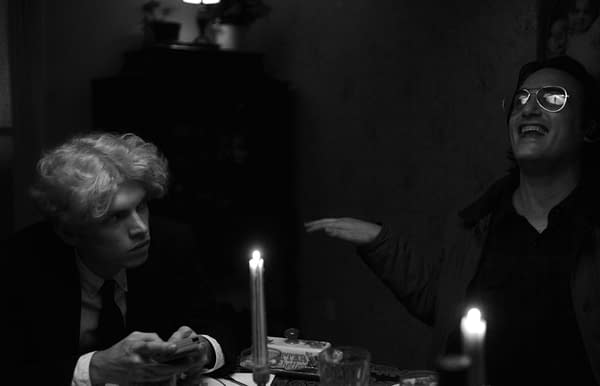
Given how things ended for Hippo and Buttercup, were there other endings you were playing around with, or was it something you always set to do?
When we wrote it in, it felt right. My grandma has a real Cold War-era bomb shelter in her basement, but at first, it wasn't in the script's first draft. I don't remember exactly the sequence of thoughts to include that scene. Once we put in the scene of [Buttercup] finding the gun in the Cold War-era bomb shelter, it was the missing puzzle piece. It was like it would all end there because this family implodes, and we're left with one.
It's a nuclear family explosion, and I didn't question it. I set out to try to make a movie that could fit in the genre space, but I can't help but have a heart in my films. That's what that ending is for me; it is a reminder that this movie isn't a throwaway genre, a scary thrill piece, or a comedy that might make you laugh. We're trying to bring it back to the heart of what family means and how hard it is to raise one.
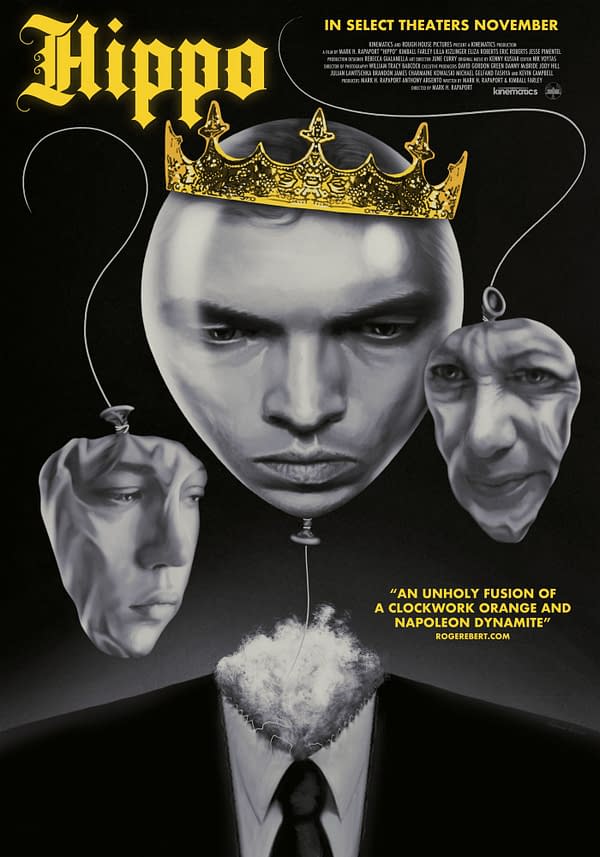
Hippo, which also stars Jesse Pimentel and Vann Barrett, is in select theaters.






